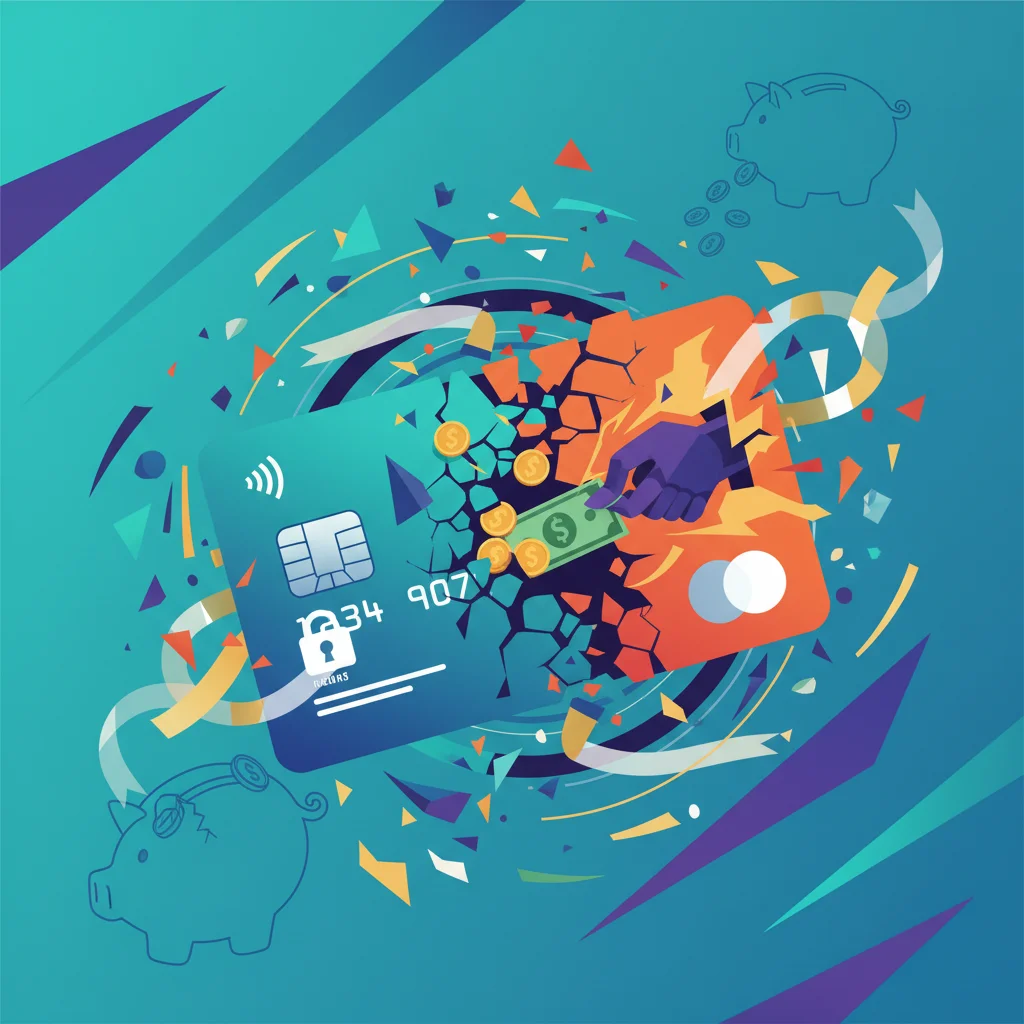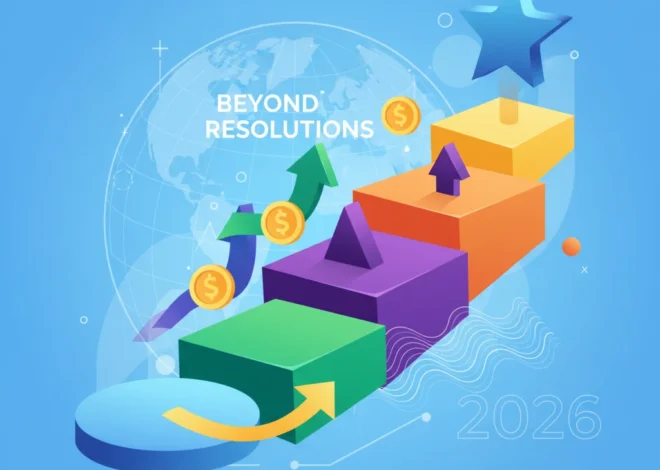
The Debit Card Deception: Why Your ‘Safe’ Spending Habit Could Be a Major Financial Risk
For decades, a simple mantra has guided personal finance: credit cards are ‘bad’ debt traps, while debit cards are ‘good’ because you’re only spending money you already have. This black-and-white thinking, championed by many a frugal guru, feels intuitive. It’s a narrative of fiscal discipline versus reckless borrowing. But what if this conventional wisdom is not just outdated, but dangerously wrong?
In a world of sophisticated digital commerce, online fraud, and complex consumer rights, clinging to this simplistic view can leave you financially exposed. As finance expert Martin Lewis has pointed out, the debate is far more nuanced. The reality is that for savvy consumers, a credit card, when used responsibly, is one of the most powerful financial shields available. Conversely, your seemingly innocuous debit card can, in certain situations, become a significant liability. This article will dismantle the “debit good, credit bad” myth, exploring the critical differences in consumer protection, fraud liability, and long-term financial health that every investor, business leader, and consumer needs to understand.
The Invisible Armor: Understanding Modern Consumer Protection
The single most compelling argument for using a credit card, especially for significant purchases, lies in a powerful piece of legislation that debit card users simply don’t have. In the United Kingdom, this is Section 75 of the Consumer Credit Act 1974. Similar protections exist in other regions, such as the Fair Credit Billing Act in the United States. These laws establish the principle of ‘joint and several liability’.
What does this mean in practice? When you buy something on a credit card costing between £100 and £30,000, both the retailer and your credit card company are equally responsible for ensuring you get what you paid for. If the retailer goes bust, sends you a faulty product, or fails to deliver the service, your credit card provider is legally obligated to make you whole. Consider this scenario: you book a £2,000 holiday with an airline that ceases trading before you fly. If you paid by debit card, that money is likely gone; you become just another unsecured creditor in a long line, with little hope of a full refund. If you paid by credit card, you can simply claim the full amount back from your card issuer. This protection is a cornerstone of modern consumer finance, a safety net built into the credit system.
Debit card users have a more limited recourse called the ‘chargeback’ scheme. While helpful, it’s a voluntary agreement between banks and card networks like Visa and Mastercard, not a legal requirement. As the Financial Ombudsman Service explains, there are stricter time limits and fewer guarantees, making it a less reliable shield in a dispute.
Fraud Liability: Whose Money Is Actually at Risk?
In today’s digital economy, the risk of payment fraud is ever-present. Herein lies another critical, yet often overlooked, distinction between debit and credit. When a criminal fraudulently uses your credit card details, they are stealing the bank’s money. You report the unauthorized transaction, the issuer investigates, and you are typically not liable for the fraudulent charges. Crucially, your own cash flow remains untouched. The fraudulent charge sits on your credit account, not as a debit from your current account, meaning your ability to pay your mortgage, rent, or utility bills is not compromised.
The scenario with debit card fraud is far more alarming. When your debit card is compromised, the money is taken directly from your bank account. It is your money that is gone. While banks are obligated to investigate and refund victims of fraud, this process can take time. A 2023 report from UK Finance highlights the scale of unauthorized fraud losses, underscoring the importance of robust protection. During the investigation period, you could be left without access to essential funds, potentially leading to bounced payments and significant stress. The psychological and practical difference is immense: with credit cards, you are protected while the bank resolves its problem; with debit cards, you are exposed while you wait for the bank to refund your problem.
To crystallize these differences, here is a direct comparison of the core features of debit and credit cards:
| Feature | Debit Card | Credit Card |
|---|---|---|
| Source of Funds | Directly from your bank account (your money). | A line of credit from a lender (their money). |
| Consumer Protection | Limited to voluntary chargeback schemes. | Strong legal protection (e.g., Section 75 in the UK) for qualifying purchases. |
| Fraud Liability | Your cash is removed instantly; you must reclaim it. Can impact immediate liquidity. | The bank’s money is at risk; fraudulent charges are disputed without affecting your cash. |
| Impact on Credit Score | No impact. Does not build credit history. | Significant impact. Responsible use builds a positive credit history, improving future borrowing terms. |
| Rewards & Perks | Rare and generally low-value. | Commonly offers cashback, travel points, and other benefits funded by interchange fees. |
| Debt Potential | Low. Cannot spend more than your bank balance (unless you have an overdraft). | High. Carries the risk of accumulating high-interest debt if not paid in full. |
Building Your Financial Reputation: The Credit Score Imperative
In the world of investing and capital, reputation is everything. Your personal financial reputation is encapsulated by your credit score, a metric that dictates your ability to access future credit and the terms you’ll be offered. Whether you’re seeking a mortgage to buy a home, a loan to start a business, or even just a competitive mobile phone contract, a strong credit history is non-negotiable.
This is where debit cards fall completely flat. Your diligent, on-time payments for daily expenses using a debit card are invisible to credit rating agencies. You could be the most responsible spender in the country, but your debit card usage does nothing to prove it. A credit card, on the other hand, is a primary tool for building a credit file. By using a small portion of your available credit and, crucially, paying the balance in full each month, you demonstrate to lenders that you are a reliable and low-risk borrower. This responsible behavior is reported to credit bureaus, systematically building a positive history that will pay dividends for years to come. As credit agency Experian notes, payment history is one of the most significant factors in calculating your score. Ignoring this powerful credit-building tool is a missed opportunity to strengthen your financial future.
The Macro View: How Your Choice Powers the Financial Ecosystem
The differences between debit and credit extend beyond personal benefits and into the wider mechanics of the banking industry and global economics. The rewards, protections, and fraud guarantees offered by credit card companies are not free. They are funded by ‘interchange fees’—a small percentage of each transaction (typically 1-3%) that the merchant pays to the card-issuing bank.
This fee is a critical revenue stream in the financial technology space, fueling innovation and competition among payment processors like Visa and Mastercard, whose performance is a key indicator on the stock market. While some argue this fee is passed on to consumers through slightly higher prices, it’s the engine that powers the entire value-added ecosystem of credit cards. It’s a model where responsible users, who pay their balance in full, benefit from robust security and rewards, subsidized by merchants and by users who carry a balance and pay interest. Understanding this flow of capital is key to grasping the intricate relationship between consumer behavior, banking profitability, and the broader health of the payments industry.
A New Pour: Can a Governance Guru Reignite Growth at Spirits Giant Diageo?
Conclusion: A Strategic Approach to Your Wallet
The notion that debit cards are inherently ‘safer’ than credit cards is a relic of a simpler financial time. In our interconnected and digital world, safety is not merely about avoiding debt; it’s about robust protection against fraud, corporate failure, and faulty goods. It’s about strategically building a financial reputation that unlocks future opportunities.
The financially prudent approach is not to choose one card and forsake the other, but to use them as a complementary set of tools:
- Use Credit Cards for: Large purchases (over £100), online shopping, travel bookings, and any transaction with a company where trust is not absolute. The goal is to maximize consumer protection and rewards. The golden rule is to always pay the balance in full every month to avoid interest charges, treating it as a payment tool, not a loan.
- Use Debit Cards for: Everyday, low-value spending where you want to maintain strict budget control, or for withdrawing cash. It’s an excellent tool for managing discretionary spending and ensuring you don’t spend more than you have.
Ultimately, financial maturity means moving beyond simplistic labels of ‘good’ and ‘bad’. It’s about understanding the mechanics of the tools at your disposal and deploying them strategically to protect yourself, build your wealth, and navigate the complexities of the modern economy with confidence.


